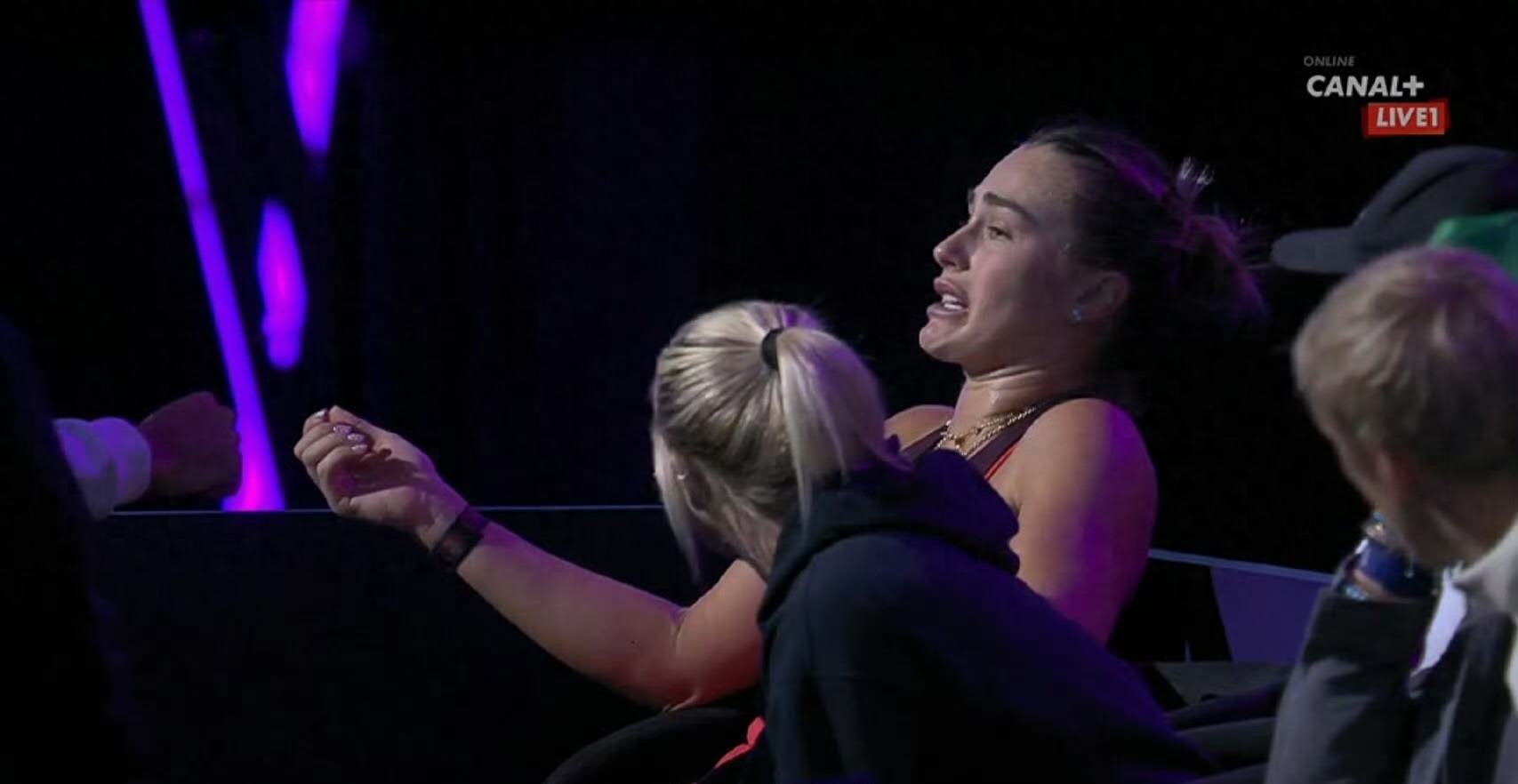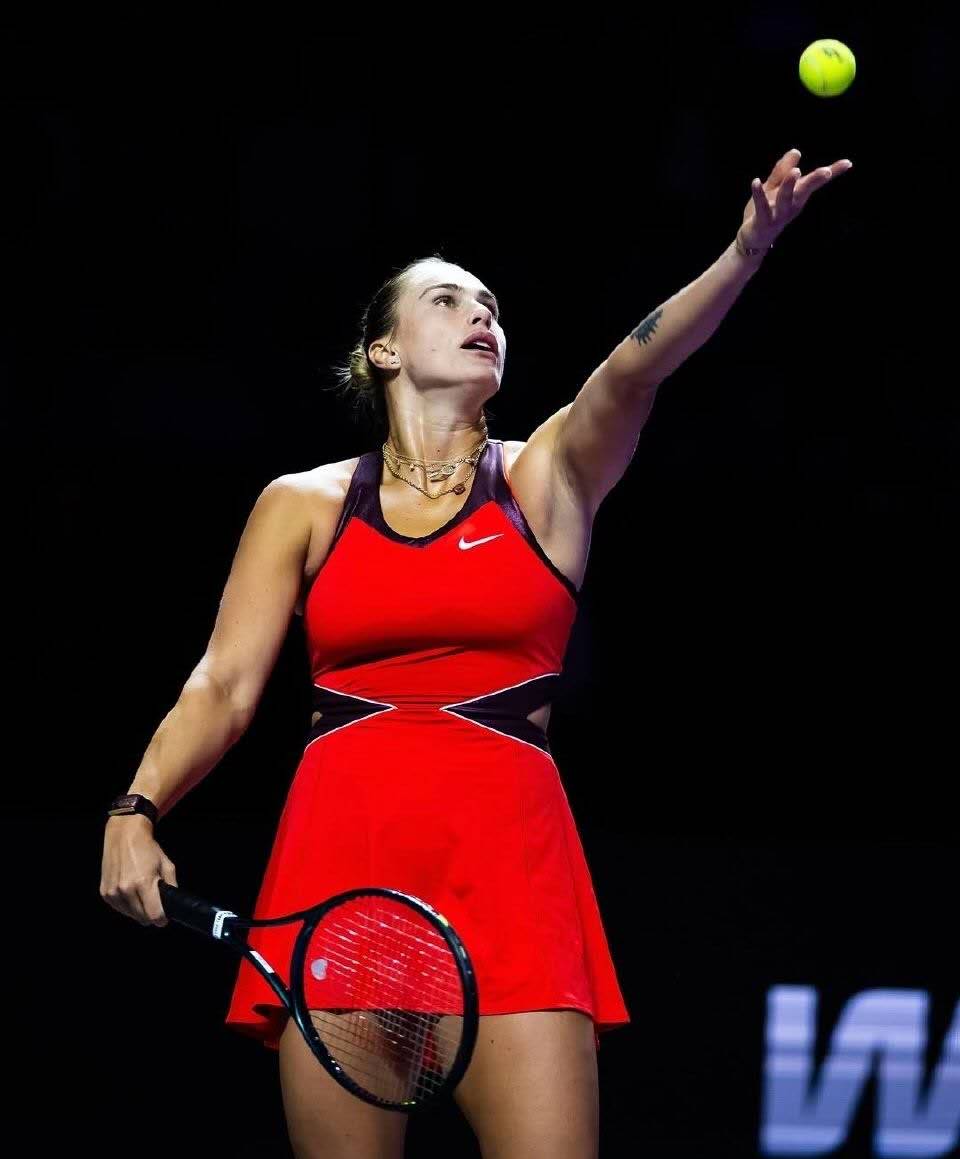Sabalenka criticized Leylah in her native language after losing, calling her a lucky cat meeting a dead mouse, but this time she received strong support from netizens.
Recently, world number one Sabalenka sparked controversy again due to inappropriate remarks. The incident occurred after she lost to Leylah Fernandez in this year’s year-end final; she returned to her seat, buried her head in her hands and cried, then complained about the defeat to her team in Russian, her native tongue. However, she did not expect this private conversation to be “decoded” by Russian-speaking users and made public.

Some netizens captured her complaints in Russian to her team through on-court microphones and translated the phrase, which is a Russian proverb: “Even a club can be used as a gun someday.” Notably, this proverb is similar to the Chinese saying “a blind cat catches a dead mouse,” implying the opponent’s victory was just a stroke of luck. This sparked heated discussion online.
Some users believe that, similar to her inappropriate comments after the French Open final, Sabalenka’s words prove the importance for many players to learn how to accept defeat rather than letting their emotions spiral out of control indefinitely.

A netizen commented, “For Sabalenka, the higher her winning rate, the higher her confidence, and the fewer chances she has to learn how to accept losses. This makes the challenge more difficult for her than for others.”
However, others argue that unlike at the French Open, Sabalenka was venting to her team privately, not speaking at a post-match press conference, so this was just a player expressing frustration in a private setting. Many also feel it is normal for players to have negative emotions; everyone experiences such feelings, and not allowing them to be released would be ‘inhumane.’

The strong support from many netizens has led to a certain reversal in this matter: many fans believe athletes really need private space, and that increasing overblown sensationalism only adds to players’ mental pressure.
“This is not an isolated case. Not long ago, Italian player Musetti also caused strong controversy due to complaints in his native language. With upgraded broadcasting equipment nowadays, every word and expression on court can be scrutinized, but is this kind of ‘over-sensationalizing’ really good for tennis?” a netizen wrote.
When private conversations enter the public domain and cultural context is stripped away, emotional outbursts can be misinterpreted as a lack of sportsmanship. Learning to accept defeat is indeed recognized as one of the most important lessons in tennis, but it is unreasonable to expect every player to respond with a smile, fake happiness, or staged embraces with opponents after losing — that kind of forced behavior is truly ‘inhumane.’

Former tennis star and current commentator Mary Carillo pointed out, “The nature of tennis means that aside from the single champion each tournament, losing is the norm for everyone. The fastest and most positive way to process negative emotions is an essential skill for moving forward.”
A journalist who has followed WTA events for a long time observed, “Sabalenka’s straightforward personality is part of her charm, but she also needs to learn to manage her emotions better in public. Fans want to see the same lovable ‘Tiger Girl’ whether she wins or loses.”

Under this post, increasing numbers of supporters expressed understanding for Sabalenka’s remarks. One fan said, “What athletes say when emotionally upset right after a loss shouldn’t be overanalyzed. Who hasn’t lost control of their emotions? This is the real Sabalenka — candid and unpretentious. If every player spoke like a PR machine, what humanity would tennis have left?”
What do you think about this? Feel free to share your opinions and views in the comments section.(Source: Tennis Home, Author: Lu Xiaotian)







 Links
Links
 Contact
Contact
 App
App


